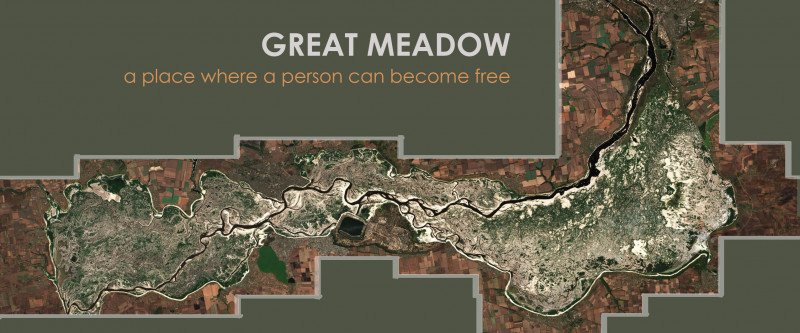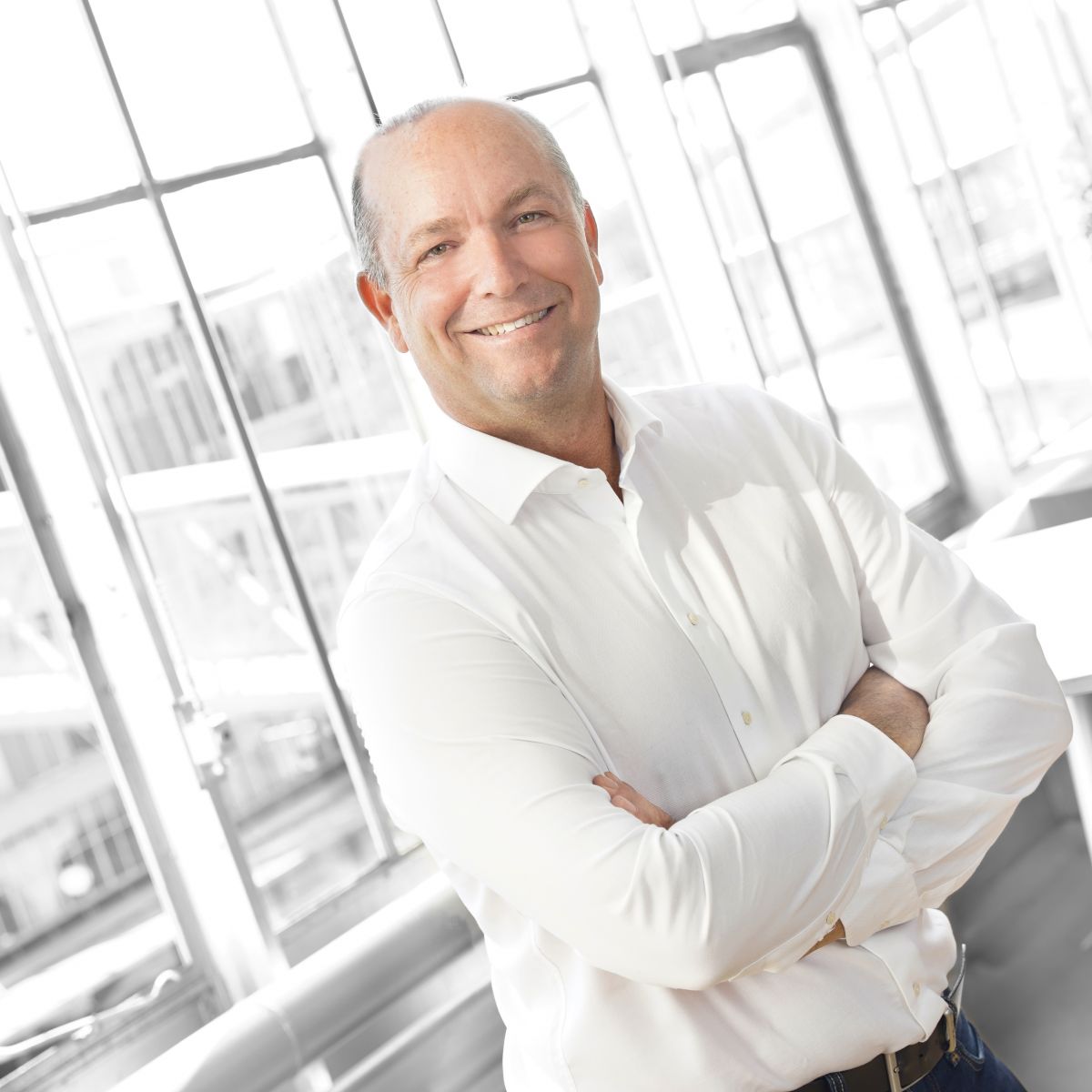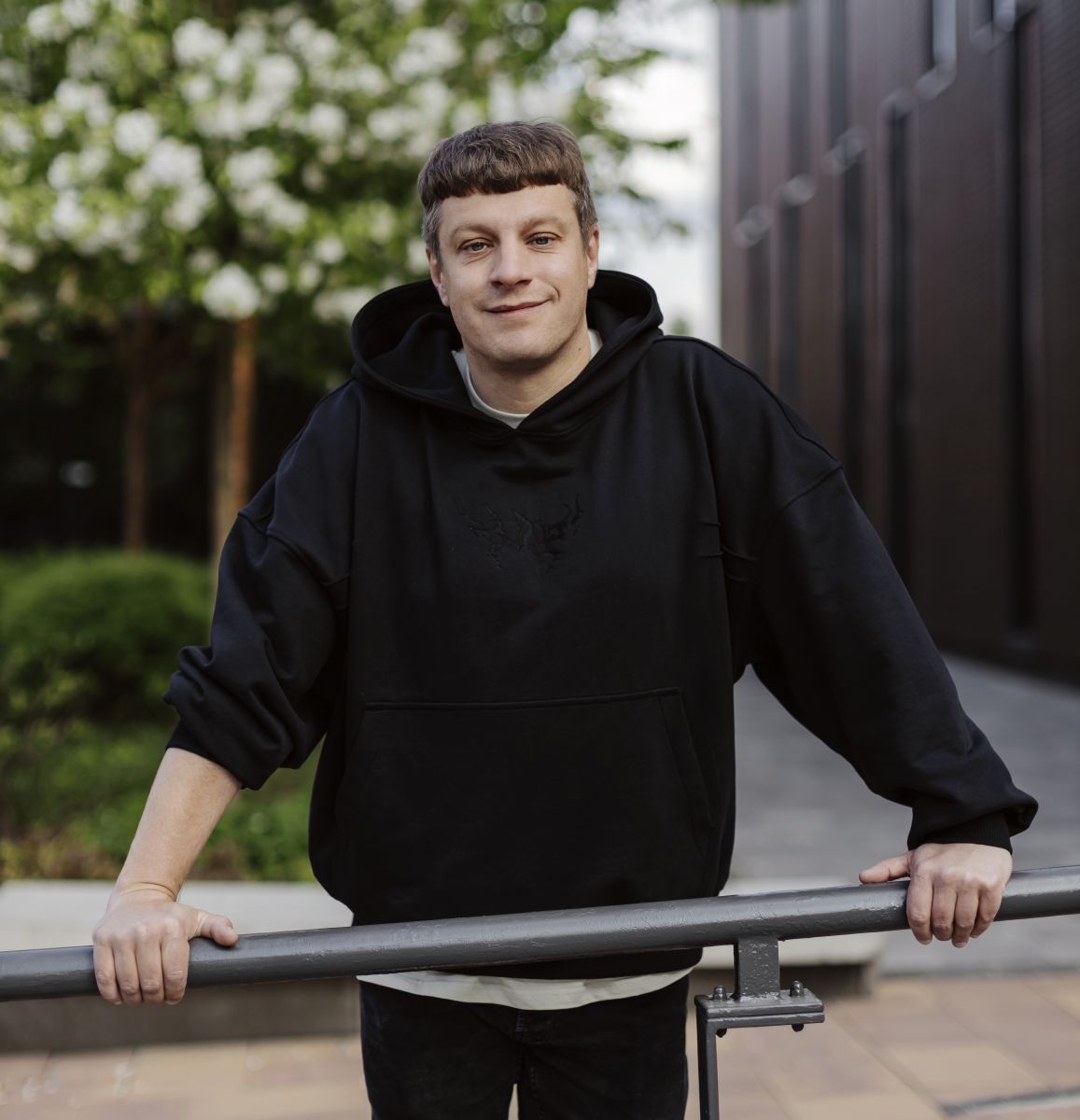table-8 Table 8 Great meadow

After the detonation of the dam at the Kakhovska Hydro Electric Station, the territory of the Dnipro Delta undergoes a total transformation on all levels. The destruction of the dam has led to the flooding or dehydration of large areas, the loss of aquatic resources, and environmental pollution. Water supply systems for settlements and the agricultural sector have been damage.
The dam explosion is a crime against the environment, and its consequences will be felt for many years to come. Many environmentalists, biologists, and conservationists believe that restoring the reservoir after the end of hostilities to the extent it was would be no less of a crime than blowing up a hydroelectric power plant.
I invite you to jointly search for new paradigms in establishing connections and developing relationships on this historically significant territory.
Based on the reconstruction of the cultural and public space in the park area of Novovorntsavka village, we will create an architectural concept of the transition space between the existing urban landscape and the newly created natural environment. This concept will serve to describe the point of intersection of the two spatial models, where a new quality of human perception is born. On the line of connection of the two systems new meanings of coexistence of man and nature are created. We strive to go beyond traditional views on the trajectory of the territory’s development, rethink prejudices and assimilate modern knowledge while paying homage to the historical background.
Through professional synergy and personal metamorphosis, let us dissect pivotal concerns through diverse lenses.
Our mandate is to use the architectural lexicon as a channel for social metamorphosis.
How to create a code for the transformation of society “free”?
I would like to propose to explore how we can help open up the direction of healing natural components. This project is spotlighting state-of-the-art technologies, sustainable design methodologies, ecosystem preservation, and the integration of eco-friendly alternative energy sources. Focus on the medium-term program. Focus on local and regional research.
Freedom at Risk: The Impact of Mega Infrastructure Projects
There was a time when people believed they could design and engineer solutions to control nature and address all human challenges. However, we now find ourselves exposed and vulnerable, heavily reliant on mega infrastructure projects.
In our group the focus will be on a major water channel in the Kherson region, once a crucial freshwater source for numerous settlements and vast agrarian areas. The Russians destroyed this channel, leaving it beyond repair. Hundreds of thousands of people have lost access to a basic necessity—water. Furthermore, the disruption in irrigation has crippled their ability to produce food. Many villages in the region are grappling with similar challenges. While the trigger in this case was war and aggression, other regions globally face similar issues due to natural disasters and more.
We want to question it with you.
How can we rebuild systems for small towns, villages and rural areas emphasizing more local and nature-based solutions?
We should also consider the uncertainty associated with the ongoing war and its potential impact on the population and safety in multiple scenarios.
 Tetiana Breus is a Ukrainian architect of buildings and structures, and she has two State Awards for the design of industrial facilities in 2010. Tetiana graduated from the Kyiv National University of Architecture and Construction and worked as a chief architect at the Ukrainian company "AS-Breus" until 2022.
Tetiana Breus is a Ukrainian architect of buildings and structures, and she has two State Awards for the design of industrial facilities in 2010. Tetiana graduated from the Kyiv National University of Architecture and Construction and worked as a chief architect at the Ukrainian company "AS-Breus" until 2022.
Currently, Tetiana Breus works as architect for the Dutch company "LIAG architects+engineers" and expands her professional experience in the direction of designing public buildings. She was born in Kherson and lived there until 2004, so she has a connection with the territory of the Dnipro delta as a resident. She said that "This territory is an amazing place where the wild wind is born. I will always remember and respect the land where I grew up."
The main direction of her investigation is the search for new harmonious relationships between humans and the environment.

Wouter Vos (1970) lived in the Caribbean and was trained as a landscape architect in the Netherlands. From 1994, he worked at a renowned landscape architecture firm in Den Bosch. In 1997, he joined KuiperCompagnons. Wouter is the program director of Liveable Cities. Within this program, Wouter works on developing knowledge to place the transitions in the areas of climate, food, energy, and (affordable) housing at the forefront of the plans we create. This enables us to make intelligent connections between the various desires, agendas, and dreams within the challenge, contributing to a sustainable living environment.

Vlodco Zotov Urban planner , Bureau of Initiative Architecture «GA».
2015–2023 Independent work in Buro of Initiative Architecture “GA”. The “GA” focuses on projects of territorial planning, urban planning, design of public spaces and architecture. The “GA” also provides services in public communication as for new planning and development issues, conducts urban analysis.
2014–2015 Urban planner in the Department of Urban Planning and Architecture of Kyiv. Responsibilities included, but were not limited to strategic planning on a city and region level, development of new norms and regulations, preparation of competition briefs and architectural contests.
2012 Initiated and conducted Urban-analysis of territories as part of architectural and investment projects. Relocated to Kyiv.
2001–2012Work as an Architect in different buros in Lviv.
1995–2001 Graduated from "Lviv Polytechnic" Institute, Master Degree in Architecture.
Table 1 Future proof just land use and land ownership
Table 2 Innovative Rainwater Management
Table 3 strategies for regeneration of the river bed and river
Table 4 BACKWARDS FREESTYLE
Table 5 The Space that Water Leaves Behind
Table 6 free fertile land
Table 7 System mind-mapping
Table 8 Great meadow
Table 9 Urgent Urbanism

